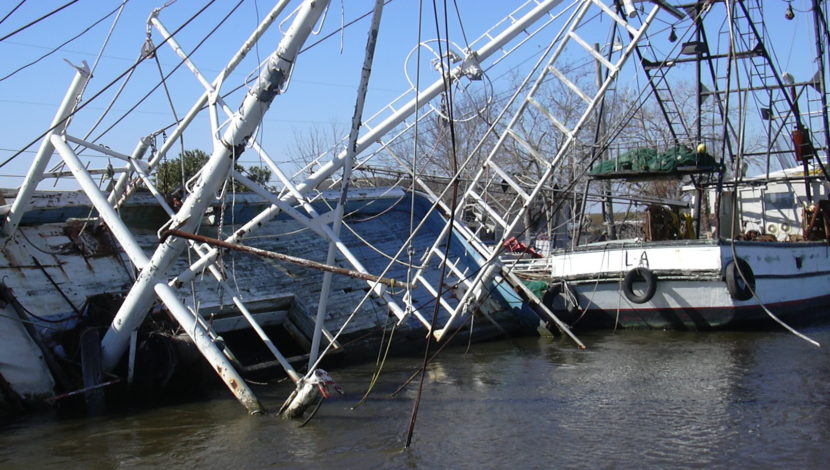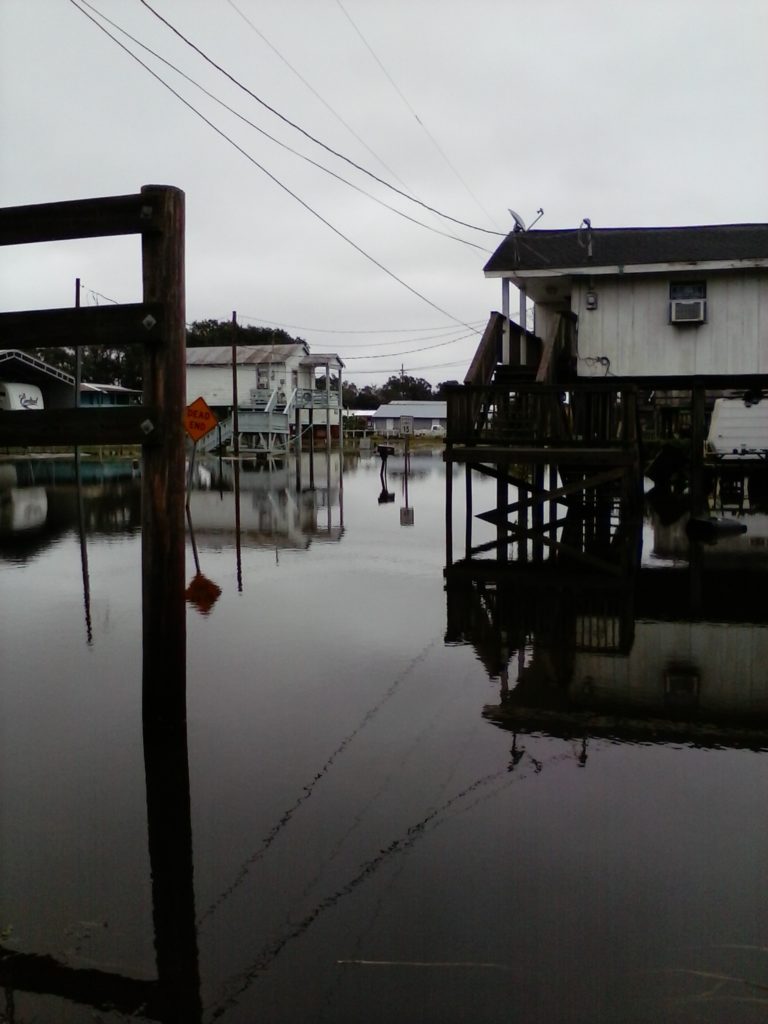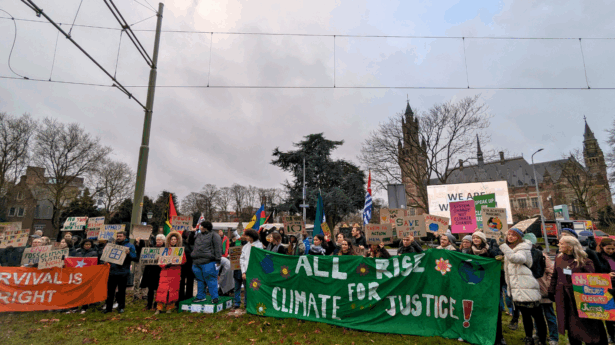The Unitarian Universalist Service Committee advances human rights through grassroots collaborations.
Like Coronavirus, the Atlantic Hurricane Season Exposes Inequality for Indigenous Communities

By on July 9, 2020
The Atlantic Hurricane season, which is formally recognized as occurring between June 1 to November 30, is upon the Gulf Coast, along with a grim but predictable forecast for Indigenous tribes in the bayous of Louisiana. In the past few decades, the following series of events has generally occurred. When a hurricane is approaching, communities are asked to brace and/or evacuate. Protection levees usually fail and communities who are not protected are eventually flooded. Many residents are forced to move and essential infrastructure services and homes are damaged. Depending on the severity of the damage and hurricane, metropolitan areas might be on the local and/or national headlines for a week or so. Rural, outlying areas are mostly overlooked.
With a high financial impact, a state declares a state of emergency with the hopes of a presidential declaration to activate FEMA and provides funds to eligible residents, but not all. FEMA does not work directly with tribal communities who lack federal recognition and local and state responses are either nonexistent or deficient. Tribal citizens, who are often severely impacted, are left without adequate shelter, water and other basic human needs. This continuous pattern of inadequate responses has, over the years, created hazardous and traumatic physical, economic, cultural, and social impacts on tribal lands and its residents.

The Grand Caillou Dulac Band of Biloxi-Chitimacha-Choctaw in Louisiana’s Terrebonne Parish has faced habitual disasters that span nearly three decades and have fueled their displacement. Hurricanes Katrina and Rita in 2005 and Hurricanes Gustav and Ike in 2008 had devastating impacts on the population in the area, which dropped from 2,458 in 2000 to 1,463 in 2010, largely because of the damage of back-to-back hurricanes and rising flood insurance rates that would allow people to protect themselves from the economic impacts of future storms. Insurance rates can be more than $25,000 a year in this area, which are grossly disproportionate to Dulac’s median income, which on average is less than $20,000.
The neighboring Pointe-au-Chien Indian Tribe (PACIT) has faced unmitigated land loss and severe infrastructure damages due to the effects of natural disasters, with no or limited assistance. In 2005, Hurricanes Katrina and Rita caused severe damage to 70 homes in PACIT. Due to minimal aid and bureaucratic denials from FEMA, these residents were forced to live in molded and flooded homes months after the storms. In 2008, the community was hit by back-to-back Hurricanes Gustav and Ike which destroyed tribal buildings, homes, and left some tribal members homeless.
These conditions have led to more sinister situations. Instead of investing in the protection of communities from further harm, state and local government takes advantage of these recurring disasters and the ensuing economic instability they create to develop real estate for their own profit, a concept known as disaster capitalism. For example, after Hurricane Isaac in 2012, Terrebonne Parish used community development block grants (CDBG) from the U.S. Department of Housing and Urban Development (HUD) to “buy out” tribal citizens’ homes in Grand Caillou Dulac that had been damaged. The parish then auctioned these homes off to developers to create revenue for the government.
This state-sanctioned disaster capitalism that creates profits for the state off of the backs of tribal communities who live with the effects of multiple layers of inequitable and unjust systems—and whose decades-long struggle for federal recognition has been marred by an onerous and unnecessarily complicated bureaucratic tribal recognition process—is a harsh reality that tribal communities in the bayou face. These unseen patterns of risks loom over tribal communities in southern Louisiana as yet another devastating and more deadly Hurricane season unleashes itself over the Atlantic.
***
About UUSC: Guided by the belief that all people have inherent worth and dignity, UUSC advances human rights globally by partnering with affected communities who are confronting injustice, mobilizing to challenge oppressive systems, and inspiring and sustaining spiritually grounded activism for justice. We invite you to join us in this journey toward realizing a better future!
Header Photo Credit: Kristina Peterson, The Lowlander Center

